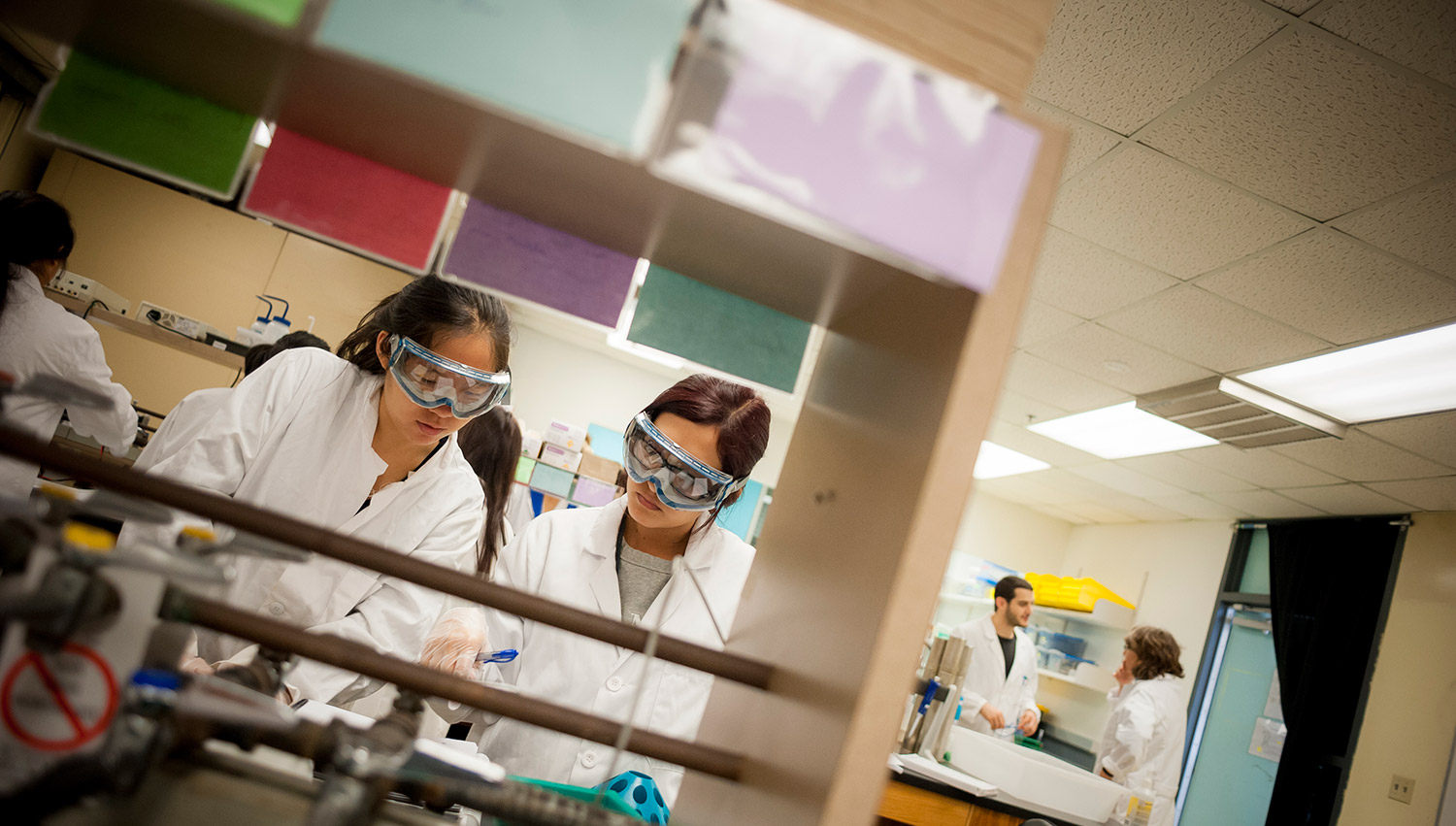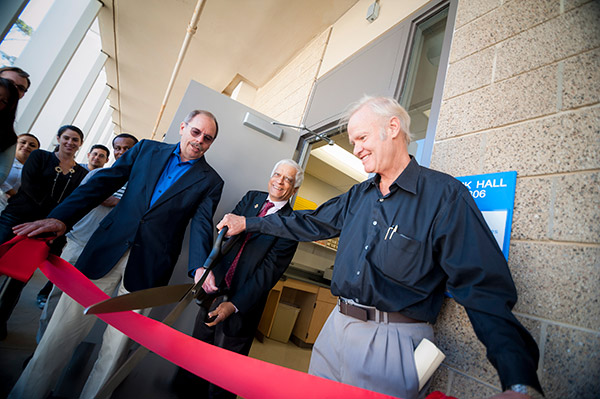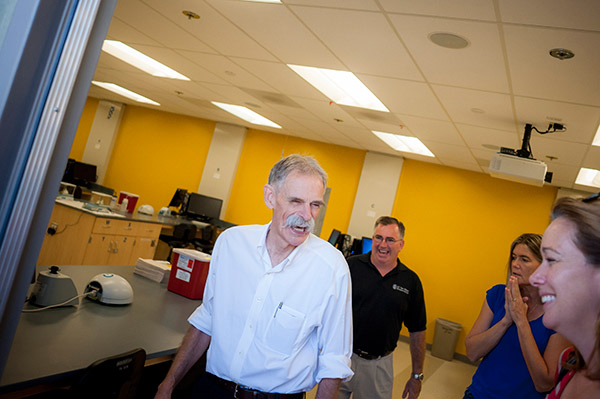Acting Student and Bioengineering Alumna Awarded Soros Fellowship for New Americans
Awards & Accolades
By:
Published Date
By:
Share This:

Photos by Erik Jepsen/UC San Diego Publications
Four undergraduate teaching laboratories for biology and chemistry students have undergone a $6.5 million makeover as part of implementation of the UC San Diego Strategic Plan. The renovated labs in York Hall will eliminate a key barrier to students accessing impacted laboratory science courses—making it easier for them to graduate in four years.

“This high priority project is a prime example of how we are fulfilling our vision as a student-centered, research-focused, service-oriented public university,” said Chancellor Pradeep K. Khosla. “The completion of this renovation enables us to continue to provide our students with a world-class education and accelerate the path to graduation.”
Two of the laboratories in York Hall, the primary location for undergraduate biology and chemistry courses, have been renovated and expanded to provide an additional 675 annual enrollments in two of the department of chemistry and biochemistry’s most impacted courses—organic chemistry and general chemistry.
The renovation and expansion of a third laboratory will provide an additional 648 enrollments in the Division of Biological Sciences’ most impacted course—biochemical techniques. And the renovation of a fourth laboratory allows the launch of a new lower-division laboratory course in biology that, beginning next year, will accommodate 1,440 students annually.
The laboratories were officially dedicated in a ribbon-cutting ceremony last week by Executive Vice Chancellor of Academic Affairs Suresh Subramani, whose office contributed an additional $700,000 for new laboratory equipment, Mark Thiemens, Dean of the Division of Physical Sciences, and Bill McGinnis, Dean of the Division of Biological Sciences.
A large percentage of biology majors had to delay taking laboratory courses until their junior or senior year, said McGinnis. “Sometimes the labs are too full and students can’t register when they’d like to register for their lab courses,” he said. “So this renovation, which expands the amount of teaching lab space, increases the likelihood that biology students can get through their degree in four years.”

In addition to the added 12,000 square feet of laboratory instructional space, the updated labs are substantially more modern, having replaced antiquated teaching laboratories that were built in 1966 when York Hall itself was constructed.
“These labs now have a modern layout and feel that is both more conducive to learning and provides an overall more attractive space for our students,” said Seth Cohen, chair of the department of chemistry and biochemistry. “Prior to the renovation, several of these labs were not in working order, so the impact on our students will be substantial.”
In addition to eliminating barriers for science students to graduate in four years, the laboratories will provide more relevant experience for students hoping to get jobs with local biotechnology and pharmaceutical companies.
“By allowing them to learn with their hands in the laboratories, our students will have better transferable skills for companies,” explained McGinnis. “Industry wants people who can actually do experimental biology in the laboratory, not just think about biology or understand the language of biology, but experimentally test hypotheses. And you need laboratory experience to do that.”
Share This:
Keep up with all the latest from UC San Diego. Subscribe to the newsletter today.